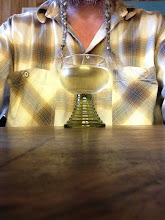To tell a story, you have to dress things up a little. Books often want to stay close to recording the fact, I'm sure Paul Brickhill really wanted to tell the true story of the The Great Escape, Dambusters and so on, but of course they are to a large extent fictions, and films are likely to be further fictions than that, simply because as a media films are rides, and real life is not really a ride- at least it's a real time ride, and one to some extent full of complexities films can never show. That is the art of scriptwriting- creating the short ride.
For instance, what makes Steven Speilberg a rather poor film maker to me is that he has to turn everything in to a sentimental journey, a fable, whether it be the Holocaust or the D-Day landings.
Undoubtedly some of my favourite films about WW2 are those which attempt the opposite; they illustrate logistics, and logistics are really boring.
War is like chess maybe, you can't win with too few pieces. Wars are also not fought for the purposes of pleasing the lives of those at No52 Lexington Avenue (they can be turned in to that by propaganda) they are by definition impersonal. You cop it in the name of the nation, or the cause, or you don't. There is nothing personal about it, it is ideological to want to join in killing vast numbers of other people.
Therefore the least entertaining Battle of the Midway and Tora Tora Tora, both of which for long periods of time have nothing happening at all, but concentrate on positioning in fog, become more fascinating than The Guns of Navarone. Sink the Bismarck is another fog war movie and at a push we could include the (awful) Battle of the Bulge which has Christmas snow.
What is perhaps more significant is that the authors of the most exotic of fables, fables I love and have watched about a million times like Where Eagles Dare, get really depressed. Alistair McLean was a mean minded wife beating drunk (if you read between the lines) terminally depressed with his own success, ashamed of the rubbish he became successful for. Tony Scott, director of Top Gun just threw himself off a bridge. We can see the same in writers of an equal and opposite persuasion, say Georgette Heyer, who despised her own romantic twaddle and was terminally ashamed to have inspired Barbara Cartland, or of course in Ian Fleming, pretty much a cunt by all accounts.
This would explain why soviet period heroic dramas are so long. It also explains why the Iliad remains so interesting (a war memorial over a play of 24hours) and assures us of the imperative of unravelling, decoding, fictions, even those you love, like Where Eagles Dare. To know that Richard Burton was himself so disgusted with the money and the fame and the fakery that he sought solace in half a dozen or more double vodkas with McLean halfway through some cliff climbing scene in Pinewood, is enough.



No comments:
Post a Comment